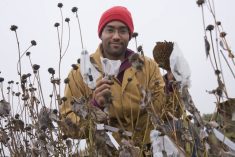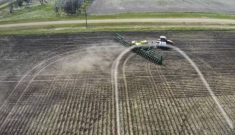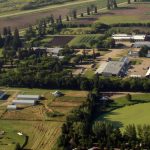Food for Thought at U of T
At the University of Toronto, I ask Prof. Harriet Friedmann — who is in the sociology and geography departments — why there is no department of food. “Food would take care of itself if farmers just grew it,” she quips, talking about post-war views of food that played a role in the structuring of university departments and government agencies. She sees that sidelining of food as a discipline as a problem all through the food system, with nobody tasked with thinking about food in a central way. “What I’m trying to do — and a lot of my students are working on pieces of it — is how to reconnect farmers with urban eaters,” Fieldmann explains. Two students who were recently in one of her geography classes are setting up farms. Next I talk to Prof. Aruna Handa, who teaches sociology of food at the University of Toronto. “Very varied,” she says, when I ask about the sort of students the course attracts, but she notes that a very large number do not have an agricultural background. She’s not worried about backgrounds, though, and says, “The wonderful thing about food is that everybody has a story to tell.”
Read Also

How scientists are using DNA and climate data to breed crops of the future
A method for forecasting how crops will perform in different environments so that plant breeders can quickly select the best parents for new, climate-resilient varieties.
Food for Thought at York University
Professor Rod MacRae tells me this school is one of the few places in Canada where students can look at food and agriculture in a larger way. He concedes that York isn’t particularly well known for food-related study, despite the fact that it has the oldest environmental faculty in Canada. “It isn’t named as such,” he says, explaining that the faculty isn’t divided into departments, so food studies aren’t highly visible. But despite the lack of a visible department, there are people here studying things such as the food system and food production. That lack of division is good, MacRae says, explaining, “It allows for this very interesting cross-fertilization of ideas.” He sees the food system as too big for just one analytical frame — and mixing and matching the frames of analysis with ideas from other disciplines gives a robust interpretation of what’s working and what isn’t in the food system. Many of the students are from related fields such as ecology and sociology, which may be on the margins of food. The York program, MacRae says, tends to attract people shifting careers or fields of study. “Students are increasingly keen on solution-based education,” he says.
Food for Thought at Laurier
“I use food as a lens for teaching,” say Alison Blay-Palmer, an associate professor in the department of geography and environmental studies at Wilfrid Laurier University. While Laurier has no specific food degree or certificate, Blay-Palmer explains that at the graduate level, students with a master’s degree in environmental studies or geography can have a food specialization. That there is no food undergraduate program doesn’t sway her from knitting food into her courses as much as possible. “When they hear about food production, often times that is something that connects for them and that links them to something they didn’t know was this big in their lives,” Blay-Palmer says. She has had students leave her undergraduate courses and become farmers — even though they hadn’t previously considered a food production career. She has also had a farmer take her courses and return home with insights into marketing in different ways. Says Blay-Palmer: “I’m really relentless.”














